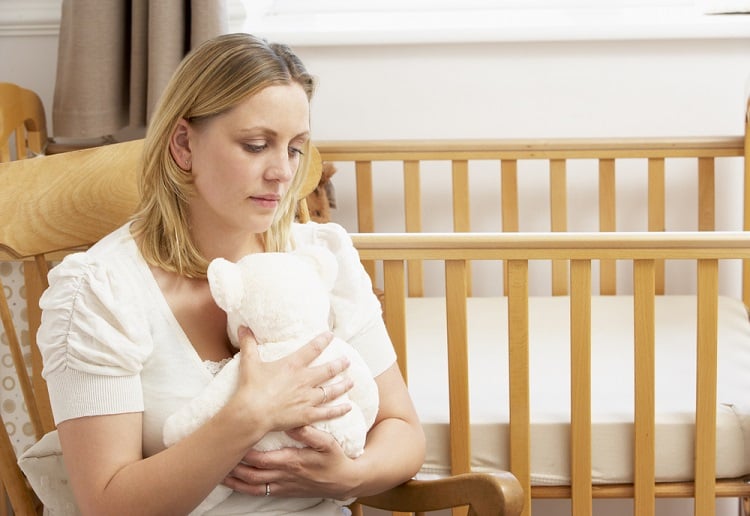Almost half of new mothers suffer this condition in silence for fear of being judged or having their baby taken off them.
Half of new mothers suffering from frightening thoughts or hallucinations – but two thirds of these hide how they feel.
Intrusive thoughts – which include killing or harming their child – are still taboo among mums with just 37 per cent admitting to others how they feel, shares Daily Mail.
The most common thought is a fear that ‘something dreadful’ will happen to the baby, with 62 per cent vividly feeling this.
A further 44 per cent were plagued by the belief their baby might die, while 13 per cent have imagined killing or harming their own child.
The study by parenting site ChannelMum.com also found one in 50 even believed their baby hated them while one per cent were convinced their mother-in-law was trying to take their baby.
Two in five (39 per cent) felt their child and partner would be ‘better off without them’ and 16 per cent considered suicide.
An additional 31 per cent admit to having an irrational fear that someone ‘will steal or harm my baby’, making it impossible for them to meet or talk to strangers.
Yet despite 43 per cent of mums suffering these extreme thoughts, 65 per cent of those were never told pregnancy and parenthood could affect their mental health.
As a result, one in five (19 per cent) feared they were ‘going mad’ when they fell ill.
Half (49 per cent) of the mums who suffered were also scared of being ‘judged negatively’.
Some 43 per cent believed others will think they are a ‘bad parent’, while 26 per cent were ‘ashamed’ of being mentally ill.
The stigma is so great that a disturbing 17 per cent of mums who fall ill admitted they thought about self-harm to try to cope, with one in 20 going on to self-harm.
One of the biggest barriers to getting help is the fear your child will be taken into care.
Overall, the survey showed the most common mental health ailment suffered by new mums is anxiety, experienced by 68 per cent of women after birth, alongside 48 per cent who undergo insomnia due to worry.
A further 35 per cent battle Post Natal Depression, a third (33 per cent) become agoraphobic and 23 per cent are hit by panic attacks.
Lack of sleep was seen as the main trigger for mums falling ill, with 55 per cent believing this contributed to their condition.
A further 54 per cent said they felt ’emotionally overwhelmed’ as a new parent, alongside 39 per cent who admitted they tried to ‘be the perfect parent’.
Signs of PND can include panic attacks, persistent, generalised worry, development of obsessive or compulsive behaviours, abrupt mood swings, feeling constantly tired, withdrawing from friends, difficulty focusing, feeling constantly sad or crying for no reason and having thoughts of death or suicide.
If you are struggling and need some support please reach out to Lifeline 13 11 14 or PANDA National Helpline (Mon to Fri, 9am – 7.30pm AEST) Call 1300 726 306.
- A new study has found that something as simple as singing could help treat post-natal depression.
- This is what PND looks like
- One mums brutal honest story of suffering PND
Share your comments below




















-

-
-
mom101628 said
- 05 Mar 2018
-

-
-
Ellen said
- 10 Feb 2018

-

-
-
june11 said
- 09 Feb 2018
-

-
-
nealsq said
- 09 Feb 2018
Post a comment11:19 pm
3:45 am
3:24 pm
3:12 pm
To post a review/comment please join us or login so we can allocate your points.